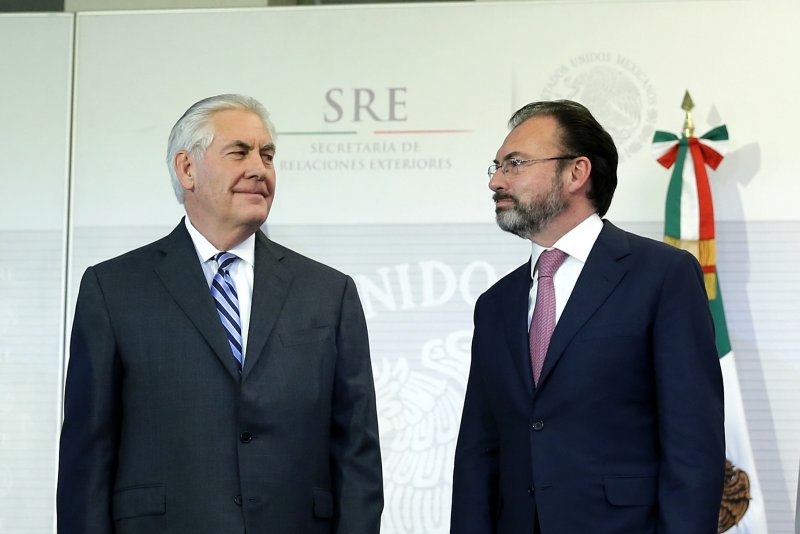ScreamingEagle
Gold Member
- Jul 5, 2004
- 13,399
- 1,706
- 245
It's about time someone got this issue into Congress. Hopefully it won't get suppressed. The superhighway and North American Union is not an "urban legend" as some would have you believe. Representative Virgil Goode (R-VA) introduced a new House Concurrent Resolution that opposes the construction of the NAFTA Superhighway and the creation of a North American Union.
110th CONGRESS
1st Session
H. CON. RES. 40
Expressing the sense of Congress that the United States should not engage in the construction of a North American Free Trade Agreement (NAFTA) Superhighway System or enter into a North American Union with Mexico and Canada.
IN THE HOUSE OF REPRESENTATIVES
January 22, 2007
Mr. GOODE (for himself, Mr. WAMP, Mr. JONES of North Carolina, Mr. PAUL, Mr. STEARNS, Mr. DUNCAN, and Ms. FOXX) submitted the following concurrent resolution; which was referred to the Committee on Transportation and Infrastructure, and in addition to the Committee on Foreign Affairs, for a period to be subsequently determined by the Speaker, in each case for consideration of such provisions as fall within the jurisdiction of the committee concerned
CONCURRENT RESOLUTION
Expressing the sense of Congress that the United States should not engage in the construction of a North American Free Trade Agreement (NAFTA) Superhighway System or enter into a North American Union with Mexico and Canada.
Whereas the United States Departments of State, Commerce, and Homeland Security participated in the formation of the Security and Prosperity Partnership (SPP) on March 23, 2005, representing a tri-lateral agreement between the United States, Canada, and Mexico designed, among other things, to facilitate common regulatory schemes between these countries;
Whereas reports issued by the SPP indicate that it has implemented regulatory changes among the three countries that circumvent United States trade, transportation, homeland security, and border security functions and that the SPP will continue to do so in the future;
Whereas the actions taken by the SPP to coordinate border security by eliminating obstacles to migration between Mexico and the United States actually makes the United States-Mexico border less secure because Mexico is the primary source country of illegal immigrants into the United States;
Whereas according to the Department of Commerce, United States trade deficits with Mexico and Canada have significantly increased since the implementation of the North American Free Trade Agreement (NAFTA);
Whereas the economic and physical security of the United States is impaired by the potential loss of control of its borders attendant to the full operation of NAFTA and the SPP;
Whereas the regulatory and border security changes implemented and proposed by the SPP violate and threaten United States sovereignty;
Whereas a NAFTA Superhighway System from the west coast of Mexico through the United States and into Canada has been suggested as part of a North American Union to facilitate trade between the SPP countries;
Whereas the State of Texas has already begun planning of the Trans-Texas Corridor, a major multi-modal transportation project beginning at the United States-Mexico border, which would serve as an initial section of a NAFTA Superhighway System;
Whereas it could be particularly difficult for Americans to collect insurance from Mexican companies which employ Mexican drivers involved in accidents in the United States, which would likely increase the insurance rates for American drivers;
Whereas future unrestricted foreign trucking into the United States can pose a safety hazard due to inadequate maintenance and inspection, and can act collaterally as a conduit for the entry into the United States of illegal drugs, illegal human smuggling, and terrorist activities; and
Whereas a NAFTA Superhighway System would likely include funds from foreign consortiums and be controlled by foreign management, which threatens the sovereignty of the United States:
Now, therefore, be it
Resolved by the House of Representatives (the Senate concurring), That--
(1) the United States should not engage in the construction of a North American Free Trade Agreement (NAFTA) Superhighway System;
(2) the United States should not allow the Security and Prosperity Partnership (SPP) to implement further regulations that would create a North American Union with Mexico and Canada; and
(3) the President of the United States should indicate strong opposition to these acts or any other proposals that threaten the sovereignty of the United States.
http://thomas.loc.gov/cgi-bin/query/z?c110:H.CON.RES.40:



